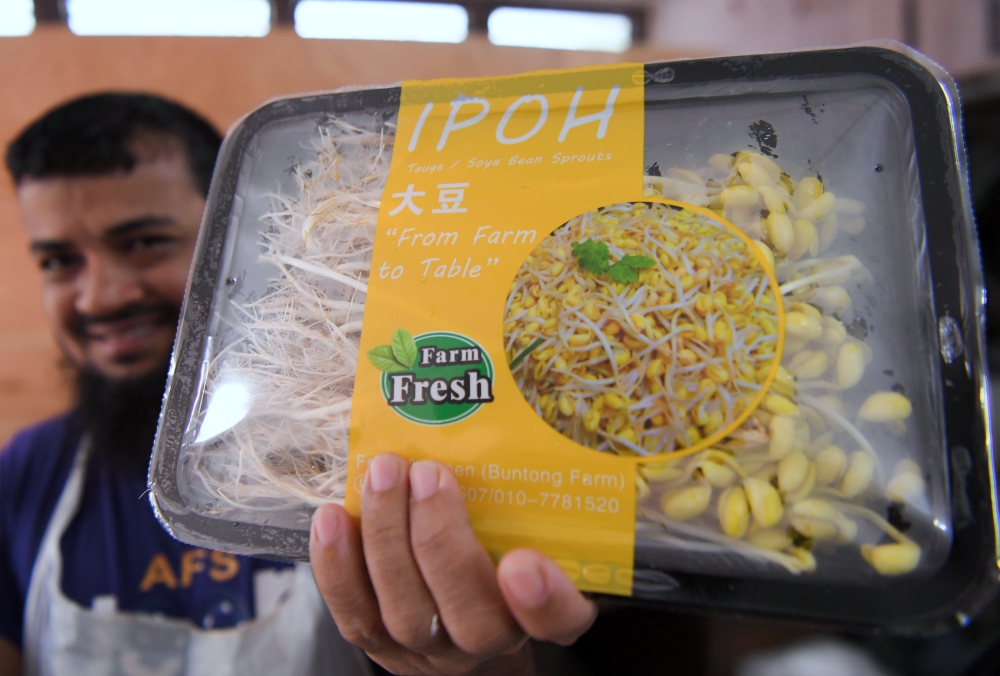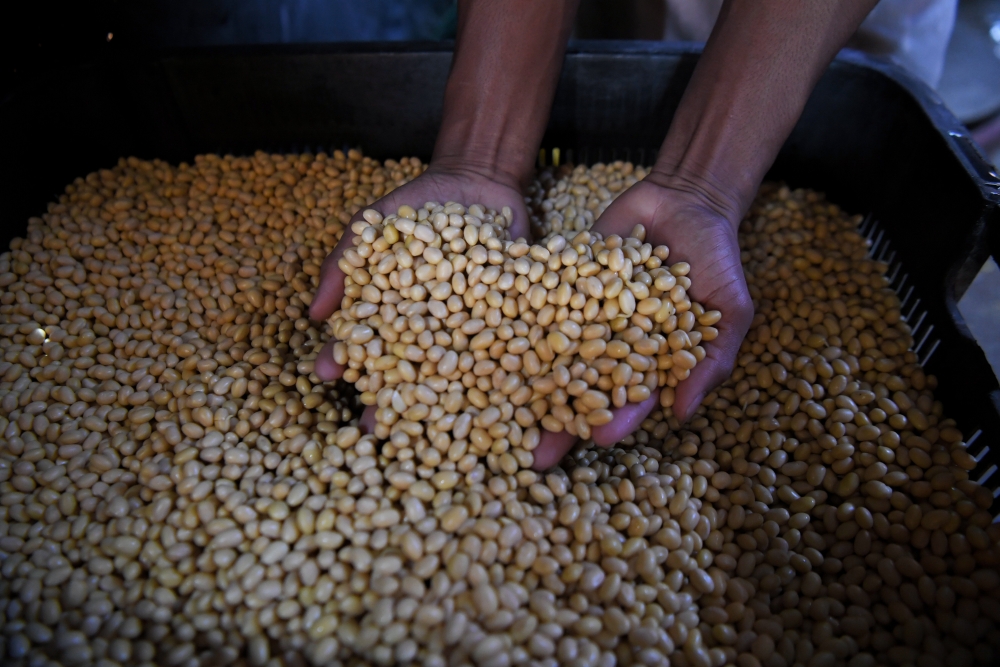IPOH, July 14 — For those all too familiar with the delightful crunch of sweet Ipoh bean sprouts, this nutritious, little vegetable called taugeh certainly holds a special place in the hearts of Malaysians.
There is no question about it, that Ipoh bean sprouts are indeed more famous compared to bean sprouts grown in other places or states because of the crunchy texture, slightly sweet taste, and plump shape that resembles a strangely, elongated punctuation mark … or is there?
Behind this uniqueness, there definitely must be a secret to why bean sprouts from Buntong have found their way into markets not only in Perak but also in neighbouring states like Selangor, where the ubiquitous taugeh is synonymous as a signature dish with chicken rice in restaurants.
So here’s the crunch: An Ipoh bean sprout producer, a towkay (or “boss” in Chinese) who only wants to be known as Sam, divulged that the secret of delicious Ipoh bean sprouts lies in the source of water used in the production process.
“Here, the production uses underground mineral water that springs from the limestone hills around the factory here, this area (Buntong) which is located around the Kinta Valley exploits this natural advantage to be produce ‘special’ bean sprouts not found anywhere else,” Sam, who is in his 40s, told Bernama.
With their crisp texture and natural sweetness, Ipoh bean sprouts have certainly earned a special place in the hearts of their fans. — Bernama pic
The father of two said that Buntong, an area in the Kinta Valley rich in limestone landscape and formations, is a strategic location for several bean sprout entrepreneurs who pump mineral water directly from underground to run their bean sprout business.
He said the limestone water is said to be high in mineral content from the underground layered aquifers, contributing to the production of bean sprouts that are plump, fluffier, sweeter, of better quality, less pungent in smell, and rich in calcium.
Sam explained that to produce quality bean sprouts, he uses black matpe beans (also known as Black Gram) imported from Myanmar, measuring 3.25 millimetres.
“The process begins with soaking the beans for a certain period, followed by a filtering process to separate and remove the damaged beans. Only the best beans are selected, placed in large tubs, where they are soaked with water at the right temperature and lighting,” he said.

This nutritious vegetable stands out from other varieties thanks to its crunchier texture, slightly sweet taste and plump appearance. — Bernama pic
He said that the beans need to be watered every four hours daily, hence factory operations are carried out in shifts by workers to ensure that the watering schedule is followed precisely.
This is crucial because the bean sprout production process is very sensitive to time, temperature and water quality.
Sam further shared that after six days, the perfect bean sprouts are ready to be packed and delivered to wholesalers across Ipoh and several other districts in Perak.
“It seems simple, but this process (producing bean sprouts) is difficult and demands high precision. If you don’t control the time and temperature, the bean sprouts can be damaged or of poor quality. In a day, on average, three to four sacks of black beans have to be thrown away because they are not suitable for processing into bean sprouts,” he said.

A type of soybean sprout product produced in Buntong in Perak. — Bernama pic
Sam said he has been running the family-run business inherited from his grandfather and father for nearly 10 years. The business, which is over 40 years old, can produce up to one tonne (1,000 kilogrammes/kg) of bean sprouts daily.
The bean sprouts come in two types: short and long, where short bean sprouts are sold at around RM3 per kg, while long bean sprouts are priced lower and can stay crunchy for three days if stored in the refrigerator.
Meanwhile, a chicken rice trader Amirah Hanis Mohammad Asri, 37, said she chooses Ipoh bean sprouts due to high demand from customers.
“I sell Chinese-style (called Nga Choy Kai Fun or Ayam Taugeh) chicken rice served together with taugeh bean sprouts as a side dish doused with soy sauce and oil. Most customers crave the short and plumper Ipoh bean sprouts, as they are tastier and crunchier. I buy fresh stock every day to keep customers satisfied and smiling,” she added. — Bernama





